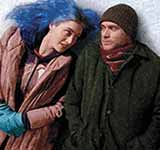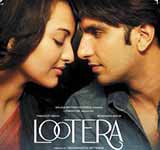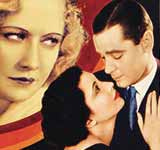1. Dilwale Dulhania Le Jayenge
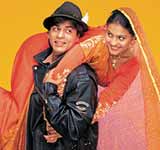
2. Devdas
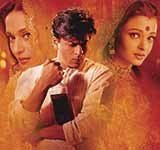
3. Dil To Pagal Hai
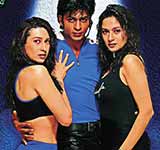
On Valentine's Day, Joel Berish (Jim Carrey), as usual, got ready to go to work, but at the last minute, standing at Long Island Station, he decided that he needed to change the route, and got on the train from Montok to Rockville Center. In the train, he meets a blue-haired girl, Clementine Kruchinski (Kate Winslet)...
This year is 1953. Pakhi (Sonakshi Sinha) lives with her landlord father (Barun Chanda). Her father keeps her in his strict supervision. Varun (Ranveer Singh) comes in her life. He tells himself an archaeologist.
6. Across the Universe
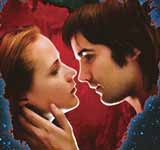
Doris Attinger tries to shoot her faithless husband Warren, who cheats on her with Beryl Caighn. The Bonn couple learn about it the next morning from the newspaper. Adam Bonner is a...
8. Admission

9. Angel Eyes

10. Autumn in New York
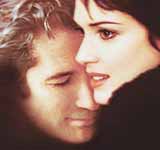
Will Kane is successful as a businessman, he has his own restaurant in Manhattan and as a man, he automatically and mutually flirts with the first beauty he meets. He is an aging but still charming specimen. At a party in his culinary hotel, Will accidentally impressed young Charlotte, the inventor of crazy hats, celebrating her 22nd birthday. Cleverly played by a trick from his rich arsenal, he lures her on a date, where the story of life and love begins, their true meaning in gaining. Who is Charlotte's girlfriend for Will? New affair. And he explains to her, already said hundreds of times, that they have no future. None of his previous passions have been able to fend off this. But not Charlotte: she has a heart disease that only miraculously allowed her to live so long. So she does not have a future for their relationship. Both live this very minute. She gave him love, stirred his feelings. Pain and happiness, suffering and cruel sadness also came. But he gave her even more - life. She reconciled to her fate, not wanting to give hope to her relatives. But, as you know, hope dies last, and she has found an incentive to fight for life she does not want to leave it. It happens that life rewards a few daredevils.. But, not this time. In the early morning, Will prepared a favorite surprise, but she suddenly felt ill. The emergency operation didn't help either, and Will, along with relatives, learned from the surgeon that Charlotte was gone.
11. Baby Boom
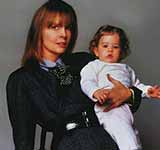
12. Bad Sister

13. Boomerang
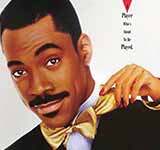
14. Couples Retreat

15. Crazy New Year's Eve

16. Doc Hollywood
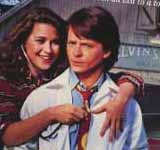
17. Eating Out 3: All You Can Eat
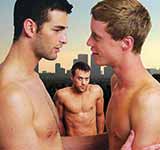
18. Fools Rush In

19. Friends with Kids
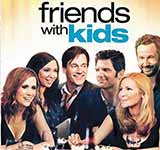
20. Heartbreakers

21. Hello, My Dolly Girlfriend
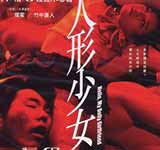
Qin Feng (Ge Yu) returns from the United States to his homeland, where he wants to find himself a - modern outside, old fashioned inside. But among all, he only likes the beautiful Liang (Shu Qi), who loves a married man...
23. Imagine Me & You

24. In the Mood for Love
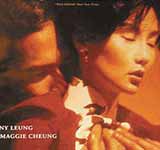
25. Love's Whirlpool

26. Management
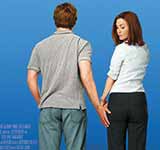
27. Monster-in-Law

28. Mungaru Male

29. Nights in Rodanthe
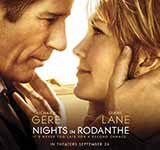
30. No Strings Attached

31. Return to Me

32. Safe Haven

33. Sleeping with Other People
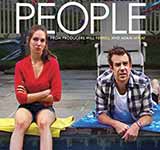
34. Someone Like You
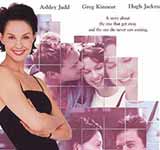
35. Sorry, I Love You

36. South of the Clouds

37. Take Me Home Tonight

38. The Bounty Hunter

39. The Goodbye Girl
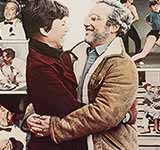
Directed by Herbert Ross, the film stars Richard Dreyfuss, Marsha Mason, Quinn Cummings and Paul Benedict. The script original Neil Simon revolves around a trio-a strange actor who struggle sublet an apartment from a friend in Manhattan, the current occupant (his friend's ex-girlfriend, who has just been abandoned) and his precocious daughter. Richard Dreyfuss won the Academy Award for Best Actor for his performance as Elliot Garfield. At the time, he became the youngest man to win an Oscar for Best Actor. At the age of 29 at the time of filming, Richard Dreyfuss was the youngest actor until 2002 to receive the Best Actor Oscar. In 2002, Adrien Brody broke this record, with the Oscar received by The Pianist.
40. The Heartbreak Kid

Elle Evans (Joey King) is a 16-year-old high school student who has tried but has never been kissed, for the fundraiser Elle and Lee decide to put a post of kisses without imagining that they would end up kissing Noah (Jacob Elordi)...
42. The Prince and Me
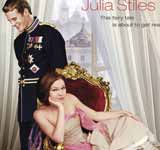
Paige Morgan (Julia Stiles) is a pre-medicine student at a University of Wisconsin. The Prince of Denmark, Edvard (Luke Mably), on the other hand, avoids his princely duties (including opening a cabinet meeting) instead of competing with sports cars. While watching television after a cabinet meeting, Edvard watches a commercial for a reality show in Wisconsin called College Girls Gone Wild, where there are drunken boys and girls without a bra. After meeting with his parents, King Haraald (James Fox), and Queen Rosalind (Miranda Richardson), Edvard announces his intention to attend college in the United States specifically, New York. Although his parents do not want him to leave, Edvard tells them that he will go with or without his consent, and that he does not want any help or money. The king sends Edvard's assistant, Søren (Ben Miller), to accompany the trip to the United States. When Edvard arrives at the university, Søren's orders are to keep his identity a secret, and they call him "Eddie". Also, his limo almost hits Paige. Later in a bar Eddie sees Paige, again, where he flirts with her. Eddie asks Paige if he can take off his shirt, just like the girls at College Girls Gone Wild. Paige angrily wets Eddie with the drinking hose and the escorts of Eddie (and Søren), come to his rescue at the bar. After running out of money, Eddie gets a job in the bar's charcuterie section, even with Paige as a reference. Paige reluctantly helps you during your first day. Eddie asks her out, but she refuses. After Eddie helps Paige learn to play Shakespeare, Paige is prompted by a friend whom he invited to his house for thanksgiving. Once there, Eddie participates in a lawnmower race, even beating rivals in the Morgan family. However, a fight occurs. After healing their wounds, Eddie and Paige kiss.
43. The Queens

44. The Twilight Saga
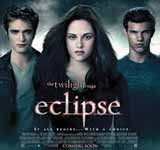
It's about two secret agents, Chris Pine and Tom Hardy, falling in love with the same woman played by Reese Witherspoon.
46. Tin Cup
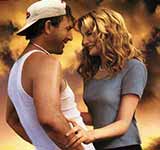
47. Tristan & Isolde

48. Warm Bodies
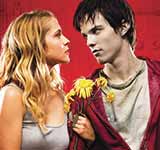
49. What Women Want

50. Woman of the Year

Tess Harding is a correspondent for a New York newspaper. She falls in love with Sam Craig, a columnist. A romance blossoms and it doesn't take long before they give each other the yes. But just as quickly the marriage appears not to work. Tess has too many political responsibilities and puts her career above her marriage. Sam, however, wants Tess to be a housewife. When Tess announces that it is time to have children, Sam finally thinks he will have the marriage he has always wanted. However, she decides to adopt a Greek orphan, something Sam doesn't like. He is fed up and is requesting a divorce. Once apart, they realize that they can no longer live without each other.
51. (500) Days of Summer

52. 10 Things I Hate About You

53. 13 Going on 30

54. 27 Dresses

55. 50 First Dates

56. A Cinderella Story

57. A Dramatic Night

58. A Lot like Love

59. A Song Is Born

60. A Walk to Remember

61. Aashiqui

62. Aashiqui 2

63. About Last Night (2014)

64. About Last Night… (1986)

65. About Time

66. Ahora o nunca

67. All for a Girl

68. Along Came Polly

69. Amelie

70. America's Sweethearts

71. American Pie

72. American Pie Presents: The Book of Love

73. American Reunion

74. An Affair to Remember

75. An Ideal Husband

76. Annie Hall

77. Arthur

78. As Good as It Gets

79. At Cafe 6

80. Badrinath Ki Dulhania

81. Ball of Fire

82. Band Baaja Baaraat

83. Be Together

84. Beautiful Thing

85. Beauty and the Beast

86. Because I Said So

87. Before Midnight

88. Before Sunrise

89. Before Sunset

90. Better Off Dead

91. Beyond Borders

92. Bitter Love

93. Blood Ransom

94. Blue Valentine

95. Blue is the Warmest Colour

96. Bobby
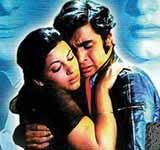
97. Book of Love

98. Born Yesterday

99. Bounce

100. Break Up 100

101. Breakfast at Tiffany's

102. Bride Wars

103. Bride and Prejudice

104. Bridget Jones's Baby

105. Bridget Jones's Diary

106. Bridget Jones: The Edge of Reason

107. Brief Encounter

108. Bringing Up Baby

109. Broadcast News

110. Brokeback Mountain

111. Brown Sugar

112. Café. Waiting. Love

113. Call Me by Your Name

114. Camille

115. Can't Buy Me Love

116. Casablanca

117. Charlie St. Cloud

118. Chasing Amy

119. Chasing Liberty

120. Cherish in Love

121. Christmas in Connecticut

122. City Lights

123. City of Angels

124. Close Range Love

125. Clueless

126. Coming to America

127. Confessions of a Shopaholic

128. Coyote Ugly

129. Crazy Love

130. Crazy Rich Asians

131. Crazy, Stupid, Love

132. Crossing Delancey

133. Dating Fever

134. Dawn Break Up

135. Dear John

136. Definitely, Maybe

137. Deliver Us from Eva

138. Deng Ni Zhui Wo

139. Desk Set

140. Did You Hear About the Morgans?

141. Different from the Others

142. Dil Se..

143. Dirty Dancing

144. Dirty Dancing: Havana Nights

145. Doctor Zhivago

146. Dolly Ki Doli

147. Don Jon

148. Don't Go Breaking My Heart 2

149. Down with Love

150. Duplicity

151. Dying Young

152. Earth Girls Are Easy

153. Easy A

154. Eating Out

155. Eating Out 2: Sloppy Seconds

156. Eating Out 5: The Open Weekend

157. Eating Out: Drama Camp

158. Enchanted

159. Endless Love

160. Everything, Everything

161. Ex Fighting

162. Exit Strategy

163. Failure to Launch

164. Fall in Love Like a Star

165. Falling In Love

166. Fanaa

167. Fever Pitch

168. Fifty Shades of Grey

169. Fiji Love

170. Finding Fatimah

171. Fitoor

172. Five Minutes to Tomorrow

173. Fleet of Time

174. Flower's Curse

175. Follow Me My Queen

176. Fool's Gold

177. Forces of Nature

178. Forever Love

179. Forever Young

180. Forget All Remember

181. Forgetting Sarah Marshall

182. Four Weddings and a Funeral

183. French Kiss

184. Friends with Benefits

185. From Prada to Nada

186. Gentlemen Prefer Blondes

187. Get Over It

188. Ghosts of Girlfriends Past

189. Girl Shy

190. Girls

191. Give Seven Days

192. Goddess

193. Going the Distance

194. Gone with the Wind

195. Good Luck Chuck

196. Green Card

197. Griffin & Phoenix

198. Griffin and Phoenix

199. Hanamizuki

200. Harold and Maude

201. He's Just Not That into You

202. Head over Heels

203. Hitch

204. Holiday

205. Houseboat

206. How Do You Know

207. How to Lose Friends & Alienate People

208. How to Lose a Guy in 10 Days

209. How to Marry a Millionaire

210. Hum Dil De Chuke Sanam

211. Humpty Sharma Ki Dulhania

212. I Don't Know How She Does It

213. I Hate Valentine's Day

214. I Just Wanna Hug You

215. I Love You Beth Cooper

216. I Think I Love My Wife

217. I'll Never Lose You

218. If I Stay

219. If Only

220. In & Out

221. In Your Eyes

222. Indiscreet

223. Initiation Love

224. Interlude

225. Irma La Douce

226. It Happened One Night

227. It's Complicated

228. Just Friends

229. Just Go with It

230. Just Married

231. Just My Luck

232. Just Wright

233. Just like Heaven

234. Kate & Leopold

235. Keeping the Faith

236. Killers

237. Knocked Up

238. Kung Fu Angels

239. Kōdai-ke no Hitobito

240. La La Land

241. Laggies

242. Larry Crowne

243. Last Chance Harvey

244. Last Tango in Paris

245. Laws of Attraction

246. Leap Year

247. Let Hoi Decide

248. Let's Get Married

249. Letters to Juliet

250. Life as We Know It

251. Like for Likes

252. Little Manhattan

253. Love & Basketball

254. Love & Other Drugs

255. Love Actually

256. Love Clinic

257. Love Exposure

258. Love Happens

259. Love O2O

260. Love Story

261. Love Without Distance

262. Love and Other Disasters

263. Love in the Afternoon

264. Love on the Cloud

265. Love, Simon

266. Lovers & Movies

267. Lovestruck

268. Lust for Love

269. Mad Love

270. Made of Honor

271. Magic in the Moonlight

272. Maid in Manhattan

273. Main Tera Hero

274. Mamma Mia!

275. Manhattan

276. Mannequin

277. Meet Joe Black

278. Meet Miss Anxiety

279. Message in a Bottle

280. Midnight In Paris
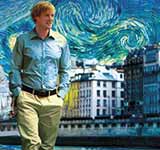
281. Mighty Aphrodite

282. Mischief

283. Moonstruck

284. Mr. & Mrs. Smith

285. Mr. Right

286. Mubarakan

287. Much Ado About Nothing

288. Mughal-e-Azam

289. Murmur of the Hearts

290. Music and Lyrics

291. Must Love Dogs

292. My Best Friend's Girl

293. My Best Friend's Wedding

294. My Big Fat Greek Wedding

295. My Geeky Nerdy Buddies

296. My Hawaiian Discovery

297. My Life in Ruins

298. My Man

299. My Man Godfrey

300. My New Sassy Girl



